Below you will find podcasts (audio) from lectures, presentations, videos and other materials which were used by the presenters.
Note: All podcasts (audio) listed below were published based on the approval from the lecturers concerned. The podcasts have the .mp3 format. Videos and other materials listed were used or recommended by the lecturers during their presentations.
DAY 1, 22 August 2018
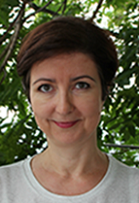
ZUZANA VATRÁĽOVÁ
Head of Office, the International Organization for Migration (IOM) in the Slovak Republic
Zuzana VATRÁĽOVÁ has served as the Head of the IOM Office in the Slovak Republic since 2004. In 2003, she worked at IOM as a coordinator of the information campaign on Preventing Human Trafficking in Slovakia. From 1997 to 2002, she worked as a journalist for BBC Bratislava and London. Prior to that, she had been a project manager at the National Agency for Development of Small and Medium Enterprises (NADSME) and she had also worked at the Ministry of Foreign Affairs of the Slovak Republic. She graduated in Journalism from the Faculty of Arts at Comenius University in Slovakia, and accomplished postgraduate studies at the Karol Rybárik Institute of International Relations of the Law Faculty at the Comenius University.
Opening of the seminar: Migration myths and terminology
After officially opening the seminar, she introduced EMN and its activities also through a video covering its 10-year existence. Furthermore, she used a myth-busting facts to counter typical stereotypes about international migration and integration in Slovakia as well as stressed the importance of using correct migration terminology and data for policymakers.
Publication: EMN's Asylum and Migration Glossary 6.0

JASPER DAG TJADEN
Data and Survey Officer, IOM’s Global Migration Data Analysis Centre (GMDAC), Germany
Jasper Dag TJADEN holds a MA in European Studies from the London School of Economics and Political Science and a PhD in Quantitative Social Sciences from the University of Bamberg, Germany. During his doctoral studies, he spent one year as a visiting researcher at the City University of New York, US. Jasper has been working in the field of migration over the last 10 years including at the UK Home Office in London, the Migration Policy Group in Brussels, the Spanish Refugee Support Commission (CEAR) in Seville, the Worldbank in Washington, D.C. In 2016, Jasper joined GMDAC and continues to work on migration issues from a data-driven, evidence-based policy perspective.
Topic presented: International migration: What data can tell us, and what it can’t
He aimed to sketch what migration data is available at the international level and draw attention of data users including policymakers to various limitations of these data. He thus summarized existing data sources and data gaps especially with regard to flows, irregular migration, emigration and return. He also introduced Global Migration Indicators and Global Migration Data Portal and talked about other positive developments in collecting migration data.

NASSIM MAJIDI
Co-Founder and Director, Samuel Hall, Kenya & Research Associate, Wits University, Africa Center for Migration Studies, South Africa
Nassim MAJIDI is the Co-Founder of Samuel Hall and Head of the Migration Pillar where she leads evidence-based research and policy development on migration and displacement. Covering three continents (Africa, Asia, Europe) over the past ten years, her crosscutting skills have led her to interview refugees, migrants and returnees in the world’s border areas, conflict settings and countries of origin. Based on her knowledge of migration actors, she has developed strategic programming initiatives, national policies on migration, and monitoring reviews that have had a lasting impact. She is also an Affiliate Researcher at Sciences Po’s CERI (Centre for International Studies), specialising on return migration and has published more than twenty academic and policy articles on migration issues. She teaches a graduate course on Refugees & Migration as part of Sciences Po Lille’s Conflict and Development Programme. Ms. Majidi was nominated in 2015 by the Norwegian Refugee Council for the Nansen Refugee Award in recognition for her work on behalf of Afghanistan’s displaced population. She holds a Bachelor’s degree in Government from Cornell University, a Summa Cum Laude Masters in International Affairs and Development Studies and a PhD in International Relations from Sciences Po Paris.
Topic presented: Migrant smuggling: an enquiry into vulnerability and irregularity through migrant stories (online lecture)
Her audio presentation focused on decision making of young Somali, Afghan and Syrian migrants, their various profiles, aspirations and roles of the smugglers in their stories. She explained the migration threshold approach as a useful tool to understand how people make decisions about migration. She discussed difference between migrants who make arrangements with smugglers in their countries of origin as opposed to those that find smugglers ad hoc or out of desperation, and often in transit settings. She described situations when smuggling turns into trafficking and challenged assumptions of male-dominated migrant smuggling, highlighting feminization of irregular migration. She summarized exploitative practices which smuggled persons face and ways to protect smuggled persons.

Kilian KLEINSCHMIDT
Founder and Chairman, Innovation and Planning Agency (IPA), Austria & Former Director of the Za’atari refugee camp, Jordan
Kilian KLEINSCHMIDT is an international networker, humanitarian and refugee expert with over 25 years of experience in a wide range of countries, emergencies and refugee camps as United Nations official, Aid worker and Diplomat. He is the founder and Chairman of the startup Innovation and Planning Agency (IPA) which aims at connecting the millions of poor and disadvantaged with relevant and under-utilized resources and modern technologies of the 21st century through its project SWITXBOARD www.switxboard.net. He is part of a number of initiatives and projects which aim at global connectivity through better use of globalization. He is currently developing a number of ventures which aim at sustainable investment in very fragile environments. He most recently became known as the “Mayor of Za'atari" when he managed the refugee camp of Za'atari in Northern Jordan from 2013-2014 on behalf of UNHCR. Za'atari has become a symbol for new and innovative approaches in refugee and humanitarian management under his leadership. He is now challenging the Humanitarian Aid Sector through a range of new and unorthodox partnerships, technologies and ways of financing. His work on emerging cities and urbanization of refugee camps is widely recognized and team building and leadership in crisis situations are a focus of his work. Previous senior roles included Deputy Humanitarian Coordinator for Somalia, Deputy Special Envoy for Assistance to Pakistan, Acting Director for Communities and Minorities in the UN administration in Kosovo, Executive Secretary for the Migration and Refugee Initiative (MARRI) in the Stability Pact for South Eastern Europe and many field based functions with UNHCR, UNDP and WFP. He worked extensively in Africa, South Eastern Europe, Pakistan and Sri Lanka and during the European refugee crisis advised the Austrian Ministry of Interior on Refugee reception. Most recently he was a Special Advisor to the German Minister of Development on Refugee issues. In 2017 he developed a strategy on stabilisation of migration flows and development in Africa for the Chancellor of Austria. He has published two books - “Weil es um die Menschen geht” (ECON 2015) and “Beyond Survival” (Dumont-Mair 2016) and authored a number of articles on refugee and migration issues. He is a renowned public speaker in conferences, TEDx and other events.
Topic presented: Desperate migration, Refugee Convention and viable solutions for all forced migrants of the 21st century
Following up on his last year lecture at the seminar, he further explored new ways of thinking about migration, refugees and protection instead of sticking to traditional assumptions and fixed narrative of closing the borders and categorization of migrants. He provided overview of major developments and events affecting forced migration which have occurred since 2017. He talked about the crucial role of municipalities in searching of solutions for people on the move, about urban planning in this regard as well as about sustainable development zones.
Video n.1 (26:51 - 30:06): Za'atari Refugee Camp's city planning - Local Government Resilience Programme in Jordan
Video n.2 (41:47 - 44:11): Urbanisation - Planning for Africa’s Growing Cities
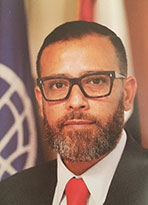
Amr TAHA
IOM Regional Office for South-Eastern Europe, Eastern Europe and Central Asia and Mission to the UN and other International Organizations in Vienna, Austria
Amr TAHA was appointed to his current position in Vienna in January 2018. He was the Head of the IOM Mission to Egypt from 2013-2017 supporting the government on numerous migration policies, legislations, and programmes that curb irregular migration and harness the migration potential for economic development. Before then, Mr Taha was IOM’s Field Coordinator for Transition and Recovery programmes (2011-2013), and Emergency Coordinator (2010-2011) in IOM’s Mission to Yemen. Mr Taha was also the Human Security and Stabilization Officer in IOM Bosnia-Herzegovina (2008-2010), Emergency and Post-Crisis Officer in IOM headquarters (2005-2006), Project Manager in the area of Assisted Voluntary Return and Reintegration in IOM Mission in Afghanistan (2003-2004), and Community Development Specialist in Kosovo (2001-2003). Concurrently, he led several assignments in Bahrain, Bangladesh, Jordan, Lebanon, occupied Palestinian territories, Sudan, amongst others. Prior to joining IOM in 2000 in Kosovo, Mr. Taha served with the United Nations in the occupied Palestinian territories; he also served with numerous NGOs predominantly in the migration field. He contributed to several publications and delivered lectures at many universities. He graduated from John Cabot American University in Rome, Italy, in 1996 with a degree in Political Science, and holds a post-graduate Diploma in Migration and Refugee Studies from the American University in Cairo.
Topic presented: Migrants’ vulnerabilities and the role of UN Global Compacts
After highlighting the importance of international migration, he discussed how the two UN Global Compacts on Refugees and Safe, Orderly and Regular Migration highlight the needs of migrants in vulnerable situations. He described specific provisions in both documents which are related to migrant vulnerabilities, as well as some of the commitments to address those vulnerabilities often in the context of mixed movements.

Arjen LEERKES
Full Professor of Migration, Securitization and Social Cohesion, Maastricht & Associate Professor of Sociology, Erasmus University, Rotterdam, The Netherlands
Arjen LEERKES is a Full Professor at the Maastricht Graduate School of Governance, an Associate Professor of Sociology at Erasmus University Rotterdam, and a research fellow at the Research and Documentation Centre (WODC) of the Dutch Ministry of Justice and Security. He holds a PhD in Sociology and Political Science from the University of Amsterdam. In 2009, Amsterdam University Press published his dissertation: Illegal Residence and Public Safety in the Netherlands. His research has been published in various highly-ranked journals in migration studies, sociology, criminology, law, social policy studies and urban studies. Mr. Leerkes also contributed to two books by Oxford University Press. He has contributed to various reports for the Dutch government, the Dutch parliament, the European Commission, and for local governments (Amsterdam and Rotterdam), and regularly advises Dutch and international NGO's. He also occasionally writes blogs and letters to the editor, and regularly comment on the news in the Dutch and other European media.
Topic presented: Corruption, transparency and (return) migration: human movement and (the lack of) good governance
He analysed why and how corruption in countries of origin can influence international migration as well as other under-researched aspects of migration and vulnerability in relation to immigration, detention and deportation. He listed the types of corruption and its relation to human security, emigration, voluntary returns as well as environmental security.
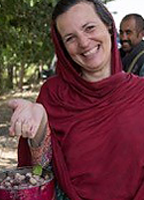
LIZA SCHUSTER
Co-Founder of Afghanistan Migrants Advice and Support Organization (AMASO), Afghanistan & Sociologist at City University London, United Kingdom
Liza SCHUSTER is a sociologist at City University of London and has been conducting research in the field of forced migration for more than 20 years. She is in the process of writing up from a recently completed research project exploring the development of migration policy in Afghanistan, the decision-making process of Afghan families and the representation of migration and migrants in Afghan oral culture. Liza has published extensively on asylum, refuge and migration, more recently on forced return to Afghanistan as well as EU asylum policy and practice. Previously, she explored the consequences of forced return for Afghan migrants and their families. This work fed into a European Asylum Support Office (EASO) Country of Origin Information Report on Afghanistan. Together with Abdul Ghafoor, she established a small non-governmental organisation AMASO to provide free, accurate, unbiased and up-to-date information to people thinking about leaving Afghanistan or forcibly returned to Afghanistan. During the period of August 2014 ̶ August 2015 she was the Research Manager at the Afghanistan Centre at Kabul University, offering courses on research methodology and mentoring Afghan academic staff. She received her PhD in Political Science on Political Asylum in Britain and Germany from the University of Southampton.
Topic presented: Vulnerabilities and challenges of Afghans post-deportation
She addressed the consequences for people returned from the EU or elsewhere to Afghanistan based on her fieldwork in this country in years 2012 – 2015. Apart from post-deportation vulnerabilities she described in detail also how the return of an individual looks like immediately after landing at the Kabul airport as well as current security and economic situation in Afghanistan. Furthermore, she gave insights into the Afghan network-driven society and its norms which can have detrimental impact on re-integration, security and re-migration of Afghan returnees.
DAY 2, 23 August 2018

François GEMENNE
Environmental Geopolitics and Migration Dynamics Specialist, Paris School of International Affairs, France
A specialist of environmental geopolitics and migration dynamics, François GEMENNE is a Fund for Scientific Research (FNRS) senior research associate at the University of Liège in Belgium where he is the Director of the Hugo Observatory. He also serves as co-director of the Observatory on Defence and Climate of the French Ministry of Defence. He lectures on environmental and migration policies in various universities, including Sciences Po and the Free University of Brussels, where he holds the Bernheim Chair on Peace and Citizenship. He is also the director of the Sustainable Development series at Presses de Sciences Po. His research deals mostly with environmental and migration governance. He has worked in particular with populations displaced by environmental changes, including natural disasters, and the policies of adaptation to climate change. He has conducted field studies in New Orleans (United States) after hurricane Katrina (2005), Tuvalu, China, Kyrgyzstan, the Maldives, Mauritius and Japan after the Fukushima disaster (2011). He is a lead author for the Intergovernmental Panel on Climate Change (IPCC) within the Working Group II and has been involved in a large number of international research projects (e.g. DEVAST, EACH-FOR, HELIX, EDGE and MECLEP) and consultations for international organisations (International Organization for Migration, the Asia Development Bank, the World Bank, the ACP Observatory on Migration) and the British government. In 2010, he was awarded the ISDT-Wernaers Prize for achievement in the communication of science to the general public. He holds a joint doctorate in political science from Sciences Po Paris and the University of Liege. He also holds a Master in Development, Environment and Societies from the University of Louvain, as well as a Master of Research in Political Science from the London School of Economics.
Topic presented: Perceptions and realities of environmentally-induced migration
His lecture focused on movement of people induced by the environmental degradation, climate migration being part of it. He highlighted some of the key aspects of environmental migration and contrasted them with the way this type of migration is still being widely perceived by the media, public and some policy-makers. He discussed manifold impacts of climate change (mainly sea-level rise, land degradation, natural disasters) inducing different kinds of migration which do not necessarily require the same policy responses and in some cases reveal gaps in international law. He stressed that the developing countries will be the most affected by the climate change although they bear the least responsibility for them.
Publication n. 1: Turn Down the Heat report series
Publication n. 2: Turn Down the Heat: Why a 4°C Warmer World Must Be Avoided
Publication n. 3: Accommodating Migration to Promote Adaptation to Climate Change
Publication n. 4: The Atlas of Environmental Migration
State-led Process n. 1: The Nansen Initiative
State-led Process n. 2: The Platform on Disaster Displacement (follow-up to the Nansen Initiative, implementing the recommendations of the Nansen Initiative Protection Agenda)

DAVID BROWN
Researcher, University of Nottingham’s Rights Lab’, United Kingdom
David BROWN is a researcher on the Antislavery Ecosystem project at the University of Nottingham’s Rights Lab. The project is examining the tight connection between modern slavery, environmental destruction and climate change. In collaboration with Royal Holloway University of London, David has recently conducted a state-of-the-art, extensive and critical review of existing knowledge on the nexus between modern slavery, environmental destruction and climate change. It aims to bring new insights into the current understanding of the nexus, as well as suggesting future research areas to explore. David recently facilitated and organised a scoping workshop in London on the topic of the nexus. It is understood that the tight linkages between modern slavery, environmental destruction and climate change are intimately bound up with flows of climate change-induced migration. Research on the nexus is carried out in the context of the SDGs which explicitly direct attention towards all three of these global challenges. David has recently completed his PhD at Coventry University that examined the REDD+ (Reducing Emissions from Deforestation and Forest Degradation) framework through a rights-based lens and from a multiscalar perspective. He holds an MA in Geography from the University of Durham.
Topic presented: Modern slavery, environmental destruction and climate change: fisheries, field, forests and factories
He looked at modern slavery and current climate change both emerged as concurrent and interconnected crises in contemporary world. It is a two way relationship where on one hand modern slavery activities such as debt bonded labour or forced labour practices may exacerbate and increase the risks of climate change and local environmental pollution. On the other hand, impacts of environmental destruction and climate change are projected to exacerbate current vulnerabilities of marginalised groups mainly in the Global South and push them into the vulnerable situations which may ultimately lead them into modern slavery. Subsequently, he pointed out statistical correlations between slavery and environmental data and described their ‘Slavery from Space’ project which uses freely available and accessible remotely sensed data (i.e. commercial satellite imagery) to map sites of slavery and build up source of evidence for further actions.
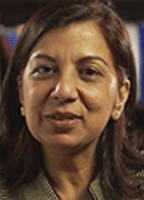
KANTA KUMARI RIGAUD
Lead Environment Specialist & Regional Climate Change Coordinator for Africa, World Bank Group, USA
Kanta KUMARI RIGAUD is a Lead Environmental Specialist at the World Bank. She works on climate policy, knowledge management, and development of tools and learning platforms to manage climate risks. She led a multidisciplinary team the Bank's flagship report on Groundswell - Preparing for Internal Climate Migration and for the Turn Down the Heat report series. She has worked with multiple client countries as the Bank's Focal point for the Pilot Program for Climate Resilience working to mainstream climate resilience into core development planning and for transformation at scale. She is current the Regional Climate Change Coordinator in the Africa Region and leads the work on the Africa Climate Business Plan and promote climate action in the region. She has also worked with the Climate Change Group and the Middle East North Africa Region in the Bank. Before joining the Bank, Kanta was at the Global Environment Facility. She serves as co-chair of the Technical Working Group on Environmental Change and Migration in Global Knowledge Partnership on Migration and Development (KNOMAD). She has a doctorate from the University of East Anglia in the United Kingdom.
Topic presented: Climate-induced migration within countries – a comparison across three developing country regions
She shared results and recommendations of the recent World Bank’s report “Groundswell: Preparing for Internal Climate Migration” which evolves around climate change-migration-development nexus. For the first time, this report looks at the scale, the magnitude and the trajectory of climate-induced migration through a robust analytical and evidence-based approach. The report focuses on three regions: Sub-Saharan Africa, South Asia and Latin America and under various scenarios projects how many people in these regions could be forced to move within their own countries by 2050 to escape the slow-onset impacts of climate change (i.e. water stress, crop failure, sea level rise). The report aims to help policymakers and countries better plan and prepare for the likely movement of people within countries as a consequence of climate change.
Video (at the end of the podcast): World Bank's report "Groundswell: Preparing for Internal Climate Migration"
Host of the public EMN Discussion Evening "Migration Caused by Climate Change"
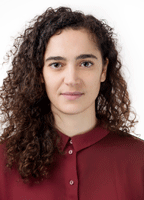
ANNA HAKAMI
INDEPENDENT EXPERT, BELGIUM
Anna HAKAMI is a Policy Analyst at the EU Policy Lab in the European Commission's Joint Research Centre. She works with a foresight project on migration and integration. Among the outcomes of the project is a Migration Toolkit which includes scenario-based engagement tools that help to stimulate future-oriented discussions, to be used by policymakers and various other stakeholders. Anna holds an M.A. in Migration Studies and Intercultural Relations from University of Oldenburg, University of Stavanger and Mbarara University of Science and Technology.
Workshop facilitated: Scenario Exploration System role-play board game about Satisfying labour market needs in Slovakia through international migration – strategy until 2030
See podcast and presentation under Alice Szczepanikova
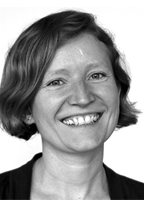
ALICE SZCZEPANIKOVA
Policy Analyst, EU Policy Lab of the European Commission's Joint Research Centre, Belgium
Alice SZCZEPANIKOVA is a Policy Analyst in the EU Policy Lab of the European Commission’s science and knowledge service, the Joint Research Centre. She works on projects related to the future of migration and integration in Europe. She is particularly interested in experimenting with new ways of stimulating debates about the future and engaging with diverse stakeholders. In her latest work, she has been devising innovative tools that help make research about migration relevant for policy-making. Alice holds a PhD in Sociology (University of Warwick, UK) and an MPhil in Gender Studies (Central European University, Hungary). Prior to joining the JRC in 2015, her academic research focused on forced and family migration and immigrant integration in Europe. Her post-doctoral studies were supported by the Alexander von Humboldt research fellowship at the Goethe University in Frankfurt am Main and the Fund for Scientific Research – FNRS of Belgium at the Université libre de Bruxelles. Besides carrying out extensive fieldwork with migrants, policy makers and civil society representatives in a number of European countries, she also collaborated with non-governmental organisations in Central and Eastern Europe in areas of gender equality, social inclusion, youth and migrant rights.
Topic presented and workshop facilitated: Scenario Exploration System role-play board game about Satisfying labour market needs in Slovakia through international migration – strategy
She introduced the Joint Research Centre (JRC) as the European Commission's in-house science and knowledge service bridging between research and policy. She invited participants to a half-day workshop where in groups they could explore a migration issue under different socio-economic conditions in the world as well as place themselves in the shoes of others or explore their own positions with a forward-looking perspective until 2030 (as EU policy-maker, national policy-maker, representative of civil society, business or public). The JRC’s board game “Scenario Exploration System” is freely available to all Members States and other stakeholders dealing with migration issues.
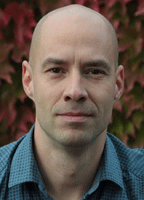
ALEXANDER AČ
Junior Scientist, Global Change Research Institute (CzechGlobe), Czech Academy of Sciences, Czech Republic
Alexander AČ is a post-doctoral researcher at the CzechGlobe located in Brno in the Czech Republic. His work ranges from plant ecological physiology, through applied remote sensing, up to impacts of climate change on natural and man-made ecosystems. His PhD thesis in the field of applied ecology dealt with the potential of remote sensing methods for a better quantification of plant process related to carbon cycle. He was involved in research projects such as development of new satellite by ESA (European Space Agency), use of fast-growing short-rotation plantations for energy purposes, or paleo-climatic reconstruction using carbon and oxygen isotopes. He is an author of a book chapter dealing with the impacts of climate change on developing countries. He translated the book about renewable energy, regularly wrote a blog more than 10 years chronicling the broad impacts of climate change, regularly writes articles and commentaries for several mainstream newspapers in the Czech Republic and Slovakia, provides interviews and statements for TV and Radio stations, and co-operates on projects with several NGOs (e.g. Friends of Earth, Greenpeace, etc.). He is a member of several mailing lists discussing the topics of sustainability and climate change and uses social media for broader outreach outside the scientific circles.
Host of the public EMN Discussion Evening "Migration Caused by Climate Change"
DAY 3, 24 August 2018
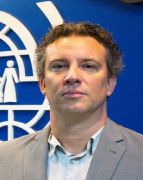
JEFFREY LABOVITZ
Regional Director, IOM Regional Office for East and Horn of Africa, Kenya
Jeffrey LABOVITZ is the Director of the International Organization for Migration (IOM) Regional Office for East and Horn of Africa covering 10 countries. He joined the Regional Office based in Kenya from IOM Thailand, where he served as the Chief of Mission since 2011. Mr. Labovitz served also as Regional Representative for Central and South Central Europe based that time in Hungary, Chief of Mission for Ukraine and Sub-regional Coordinator for the Western Newly Independent States (Belarus, Ukraine and Moldova), Regional Syria Crisis Coordinator, Coordinator for the Southern Sudan Referendum on Independence and as the Special Envoy for the Horn of Africa. He began working for IOM as a Country Representative for Out of Country Voting (OCV) for Bosnia in 1996 and 1997. He then directed OCV for East Timor and Kosovo, and acted as the Head of Electoral Programmes in Geneva Headquarters from 1999 - 2003. Concurrently, Mr. Labovitz worked as the Senior Emergency Officer and led IOM emergency teams around the world and initiated emergency and relief programs in over 20 countries including Afghanistan, Angola, Iraq, Sierra Leone, Sudan, and Zimbabwe. He was recognized for his work and was awarded for his management of OCV programs and emergencies worldwide.
Topic presented: Vulnerabilities of migrants resulting from the lack of information and legal pathways: Experiences from East Africa and South-East Asia
He demonstrated the need of labour migration and its consequences on the North Carolina’s tobacco industry which is crucial to the state economy. He pointed out that despite the system preferring native manual farm laborers is in place, native workers do not take farm jobs no matter how bad the economy becomes. He then focused on the East and Horn of Africa’s migration situation, trends, drivers, decision-making and routes including the one from Yemen and to Libya. He discussed also the maritime crisis in the Bay of Bengal and Andaman Sea in the South-East Asia.
Video: Inside A Deplorable Migrant Camp In Yemen (HBO)
Article discussed during the Discussion Evening: Migration and the Environment: Let’s Talk About Goats
Host of the public EMN Discussion Evening "Migration Caused by Climate Change"

Lara WHITE
Senior Specialist for Labour Mobility and Human Development, IOM Regional Office for Asia and the Pacific, Thailand
Lara WHITE is the Senior Specialist for Labour Migration and Human Development of the International Organization for Migration (IOM), responsible for Asia-Pacific. Lara’s key responsibilities are to provide technical and policy guidance related to labour migration and maximizing the benefits of migration for development. Lara serves as a key regional liaison with the private sector and other governmental, intergovernmental or civil society stakeholders on the protection of migrant workers’ rights throughout the labour migration process, including the promotion of ethical labour recruitment. In this capacity, she is one of the principle architects of the International Recruitment Integrity System (IRIS), a voluntary multi-stakeholder assurance scheme for international labour recruiters. Before joining IOM, Lara worked for the Government of Canada, bringing with her extensive experience in policy development and implementation of labour market programs such as the Temporary Foreign Worker Program and Canada’s Employment Insurance scheme.
Topic presented: Migrants’ vulnerabilities related to labour in the Asia-Pacific region, Good practices and lessons learnt from other countries in setting up labour migration policies & Ethical recruitment
Her lecture was devoted to labour migration in Asia, vulnerabilities of migrant workers throughout migration cycle and good practices in ethical recruitment. She highlighted the factors which can make migrant workers more vulnerable (irregular migration, migration governance gaps, enforcement challenges across jurisdictions and regions, gender dimension to vulnerability, and barriers to grievance mechanisms and remedy) and vulnerabilities specific for each phase of labour migration process. She summarized good practices stemming from bilateral agreements, regional consultative processes and private sector engagement. She described the International Recruitment Integrity System (IRIS), a social compliance scheme that is designed to promote ethical international labour recruitment.
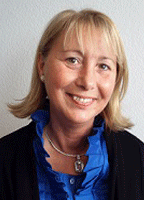
ARGENTINA SZABADOS
Regional Director, IOM Regional Office for South-Eastern Europe, Eastern Europe and Central Asia, Austria
Argentina SZABADOS assumed the position of Director of the International Organization for Migration (IOM) Regional Office for South-Eastern Europe, Eastern Europe and Central Asia in May 2016. Along with overseeing all IOM’s work in the region’s 20 countries, Ms. Szabados represents IOM at the United Nations Office in Vienna and is responsible for global liaison with all Vienna-based International Organizations. Prior to assuming her post in Vienna, Ms. Szabados headed the IOM Mission in Germany from 2010 to 2016. Ms. Szabados joined IOM in 1998 as Chief of Mission in Hungary, and was subsequently appointed Director of the IOM Regional Office for Central and South Eastern Europe, also in Budapest, until 2010. Before joining IOM, Ms. Szabados worked with the World Council of Churches where, between 1989 and 1998, she led Emergency Programmes covering the conflicts in former Yugoslavia, Chechnya, Ingushetia and Dagestan. She has received numerous national and international awards, and has written and contributed to many publications and studies on migration and humanitarian aid topics. Since 2007, she has been a senior lecturer at Fordham University’s Institute of International Humanitarian Affairs in New York City. Additionally, she has chaired many committees and boards for the Institute, and has sat on the Board of Directors of the Centre for International Humanitarian Cooperation, also in New York.
Topic presented: Increasing trends of labour migration from Eastern and South-Eastern Europe into Central Europe – roles and responsibilities of countries of origin, countries of destination and the private sector
After identifying new labour migration trends and drivers of migration in the Central and Eastern Europe, she analysed risks and opportunities associated with these trends. She pointed out ageing population and declining labour supply which make Poland, the Baltic states, Czech Republic, Slovakia, Bulgaria, and Romania all increasingly opening up to increase either temporary or permanent migration to meet labour market needs. Risks can be seen in exploitation/coercion of foreign workers in the recruitment process or employment, labour market or social integration. She also discussed ways to address related challenges for destination countries as well as for countries of origin through their mutual collaboration, involvement of private sector, access to transparent and timely information, promoting immigration and working with local governments.

PENELOPE KYRITSIS
Education and Outreach Coordinator, Worker-Driven Social Responsibility Network & Research Associate, Worker Rights Consortium, USA
Penelope Kyritsis is the Outreach and Education Coordinator at the Worker-driven Social Responsibility (WSR) Network. She is also a Research Associate at the Worker Rights Consortium (WRC). Prior to joining the WSR Network and WRC, she was Assistant Managing Editor at OpenDemocracy's Beyond Trafficking and Slavery – a platform that aims at elevating advocacy efforts and catalyzing discussions on labour exploitation. She co-authored Confronting root causes: forced labour in global supply chains and has worked on a number of research projects, including the Global Business of Forced Labour and Policing Modern Day Slavery in Rhode Island. She holds a BA in Postcolonial Legal Studies from Brown University, where she wrote her thesis on the humanitarian and legal discourses around sex trafficking and migration.
Topic presented: Forced and precarious labour in the global economy & Competing approaches for combating it in supply chains (online lecture)
She focused on labour exploitation including forced labour as a stable and predictable feature of many global supply chains in which multi-national corporations play a key role. She discussed the downward pressure on labour, its reorganization as a result of globalization as well as political economy of forced labour. Subsequently, she presented the outcomes of “Global Business of Forced Labour” study examining the business models of forced labour within global supply chains, focusing on case studies of tea and cocoa. After identifying problems with corporate social responsibility programs and multi-stakeholder initiatives, she highlighted importance of legally binding worker-driven social responsibility (WSR) activities like the Fair Food Programme, Accord on Fire and Building Safety in Bangladesh and Milk with Dignity Program.

